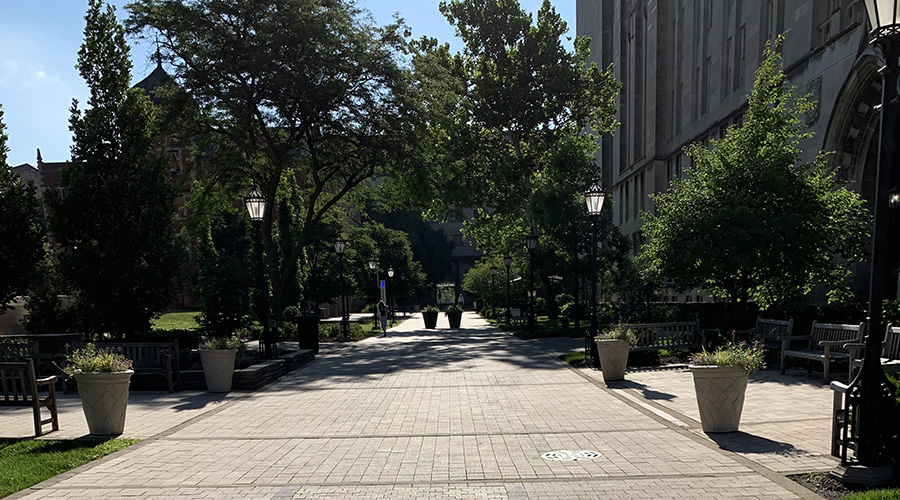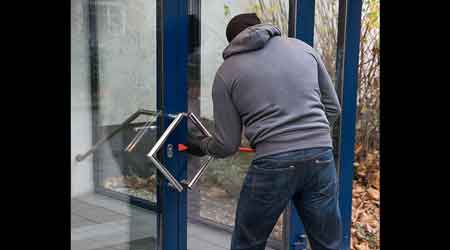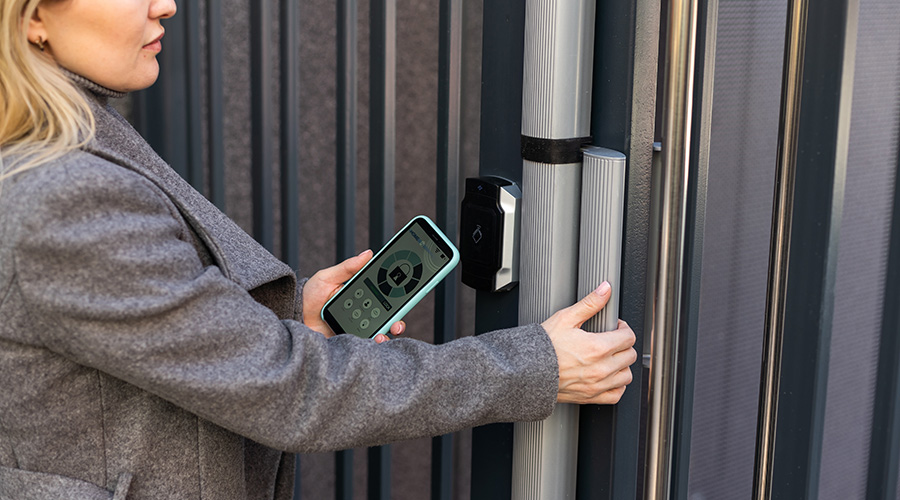Why Facility Managers Need to Start Thinking About Crime Now
As the economy slows in the wake of the COVID-19 pandemic, FMs should take steps to ensure building security.
The COVID-19 virus has brought massive disruption to the U.S. economy, and the impact will bring another disruption to facility security. Whether or not we’re technically in a recession, the ever-increasing unemployment rate will bring an accompanying negative change: crime.
The financial crisis of 2007 and 2008 was a slow and steady decline. In the midst of that economic downturn, a 2009 Police Executive Research Forum study indicated that 44 percent of respondents said they had experienced increases in crime. Additional findings from law enforcement agencies indicated:
• 39 percent reported an increase in robberies.
• 32 percent reported increases in burglaries, such as incidents in which appliances and other equipment were taken from vacant homes.
• 40 percent reported increases in thefts, such as thefts of GPS devices from cars and other “opportunistic” crimes.
What is unique about COVID-19 is its immediate impact on the economy. Many organizations don’t yet understand the full economic impact of the virus. More layoffs are possible — especially in public companies. If the past is any guide, an increase in layoffs will bring an increase in crime, especially theft. Internal theft will increase significantly due to rationalization — employees who believe they are owed for their perceived contribution’s. External theft will likely rise as some people who recently lost their jobs will be pushed towards criminal acts. Increases in thefts could be greater in states that have decriminalization efforts underway, especially in states that do have a sophisticated “booster” network(s) that is readily accessible to the types of people who typically commit crime (e.g., youth, homeless drug addicts). Decriminalization is a policy of reduced penalties for minor criminal offenses (such as theft) that typically involve a civil penalty/ticket rather than arrest and criminal prosecution. A booster is a person who makes a living by stealing retail merchandise. This is as opposed to a “fence” who buys stolen merchandise.
Much as in 2008, the financial crisis may reduce policing availability. A particular risk is that police officers may contract the virus, which could spread to whole patrol groups.
Steps to Improve Security
Here are some measures to consider improving security:
• Buildings should proactively ask for companies/tenants to identify people authorized into the building. FM’s should suspend access to others who are not authorized.
• Limit entries: single entries/exits whenever possible. Alarm all other doors, and enforce circulation routes to access the building.
• Package security programs should be evaluated and enforced more now than ever. Docks and trash areas should be controlled. Consider a single location for all package departures, preferably one that is in proximity to a camera. Change retention rates for longer period of times on recording platforms.
• All persons entering the building should be documented. Security staff should verify provided information in visitor logs via a state issued Identification.
• Establish or re-establish contacts with law enforcement and surrounding businesses and engage business watch programs. Consider the use of trespassing signs. Trespassing signs support initial notice, which is essential for law enforcement and arrest.
• Monitor your locations with video patrols, or staff these locations. Vagrancy and theft of utilities (copper) could occur, especially in states that have stay-at-home orders.
• Monitor locations for indications of vagrancy (syringes, food, bedding, etc.). All staff that could have interactions with angry visitors, staff, guests or vagrants should undergo violence de-escalation training to potentially diffuse angry confrontations.
• Consider removing/obscuring items that could be seen as opportunistic targets (observable assets). Close blinds/drapes to decrease viewability.
• Look for “casing” — similar vehicles or persons conducting hostile surveillance of a building to determine occupancy. If you see the same vehicle or person that you don’t recognize more than once, you have seen them one time to many.
Related Topics:













